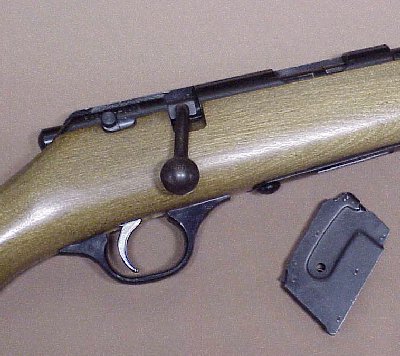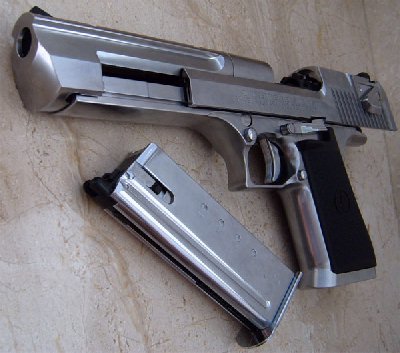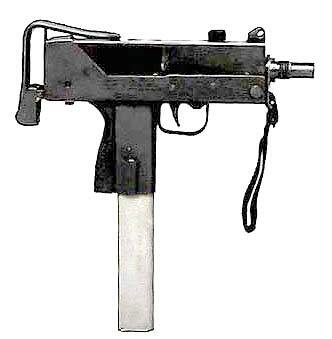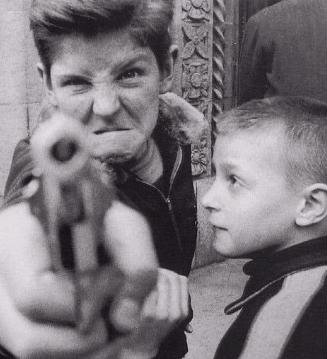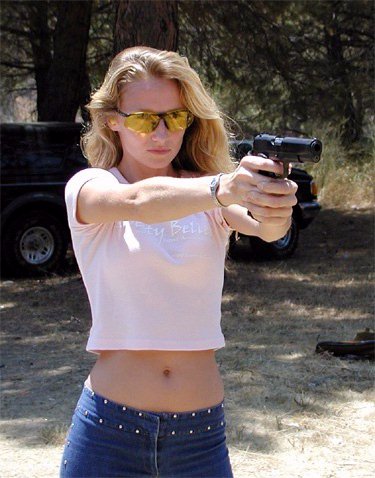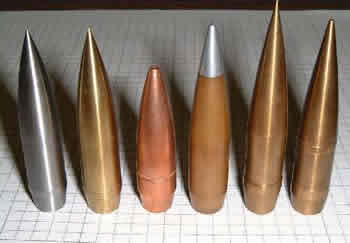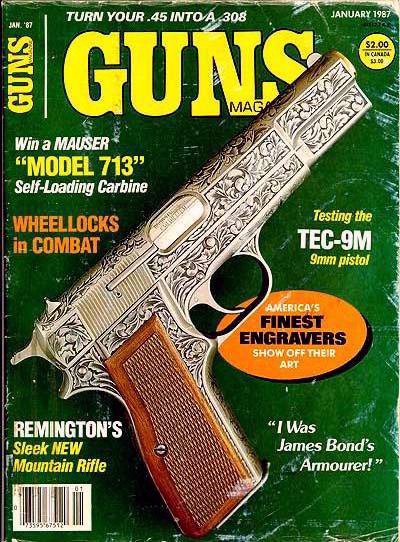| Gun Control in Canada
The Canada eZine - Politics and Law
History of Gun Laws in Canada
The Criminal Code of Canada enacted in 1892, required individuals to have a permit to carry a pistol unless the owner had cause to fear assault or injury. It was an offence to sell a pistol to anyone under 16. Vendors who sold handguns had to keep records, including purchaser's name, the date of sale and a description of the gun. In the 1920s, permits became necessary for all firearms newly acquired by foreigners. Legislation in 1934 required the registration of handguns with records identifying the owner, the owner's address and the firearm. Registration certificates were issued and records kept by the Commissioner of the Royal Canadian Mounted Police (RCMP) or by other police forces designated by provincial Attorneys General. In 1947, the offence of "constructive murder" was added to the Criminal Code for offences resulting in death, when the offender carried a firearm. This offence was struck down as unconstitutional by the Supreme Court of Canada in a 1987 case called R. v. Vaillancourt
Automatic weapons were added to the category of firearms that had to be registered in 1951. The registry system was centralized under the Commissioner of the RCMP. In 1969, Bill C-150 created categories of "non-restricted," "restricted" and "prohibited" weapons. Police were also given preventive powers of search and seizure by judicial warrant if they had grounds to believe that weapons that belonged to an individual endangered the safety of society. In 1977, Bill C-51 required Firearms Acquisition Certificates (FACs) for the acquisition (but not possession) of all firearms and introduced controls on the selling of ammunition. FAC applicants were required to pass a basic criminal record check before being issued an FAC. Fully automatic weapons were also prohibited.
In 1991, Bill C-17 tightened up restrictions and established controls on any firearms that had a military or paramilitary appearance. Legislation also made changes to the FAC system. FAC applicants were now required to pass a firearms safety course, pass a more thorough background check, and wait a minimum of 28 days aftering applying for an FAC before being issued one. Finally in addition to the above changes, laws were put into place that restricted ownership of high capacity magazines, limiting handguns to 10 rounds and most semi-automatic rifles to 5. The restrictions did not cover rimfire rifles or manual ( e.g., bolt action rifles). Provinces have the choice to opt-out of this regulation. In 1995, Bill C-68 introduced new, stricter, gun control legislation. The current legislation provides harsher penalties for crimes involving firearm use, licenses to possess and acquire firearms, and registration of all firearms, including shotguns and rifles. This legislation was upheld by the Supreme Court in Reference re Firearms Act (2000). The FAC system was replaced with Possession Only Licences (POLs) and Possession and Acquisition Licences (PALs). Referring to Bill C-68, John Dixon, a former advisor to Deputy Minister of Justice John C. Tait, stated that the Firearms Act was not public safety policy, but rather an election ploy by the Liberals intended to help defeat Prime Minister Kim Campbell. As of 2006, while legislation is still in place, the government is no longer asking long gun owners for a registration fee and will not prosecute long gun owners who do not register at all.
Age:By law, a potential customer must be 18 years of age or older to purchase a firearm or legally maintain possession of one. Citizens of Canada under the age of 18 but over the age of 12 may procure a Minor's Licence which does not allow them to purchase a firearm but allows them to borrow a firearm unsupervised and purchase ammunition. Children under the age of 12 that are found to need a firearm to hunt or trap may also be awarded the Minor's Licence. This is generally reserved for children in remote locations, primarily aboriginal communities that engage in sustenance hunting.
Registry:By law, as of January 1, 2001, all firearms in Canada must legally be registered with the Canadian gun registry. In early 2006 the Conservative Party of Canada formed the 39th Canadian govornment and announced an amnesty period of one year in which all long gun owners would not be punished for not registering their long guns. The legal requirement to register as set forth by law has not been revoked.
Violent Crime:Canada did not have serious gun control until the late 1970s. The homicide rate in Canada has been stable or declining since (e.g., the homicide rate has declined 40% from 1991-2004). Violent crime went up briefly during the economic recession of the 1980s and then began to decline when the economy went up in the 1990s.
Cutting down on gun crime without Gun Control
Illegal Guns in Criminal Hands 1. Make it significantly easier for police to gain search warrants for searching property with respect to suspected gun trafficking. 2. Increase the number of police officers in undercover roles relating to gun smuggling in order to catch illegal gun traffickers. 3. Offer rewards to people who come forward with information that leads to the arrest of gun traffickers and violent criminals. 4. Hand held metal detectors and gun-sniffing dogs at all ports of entry into Canada. 5. Stronger police presence in docks with random checks of cargo for illegal narcotics, smuggled guns, explosives and illegal immigrants. 6. Check for criminal records at all border crossings and automatically search all people suspected of smuggling. 7. Reject entry into Canada for any person with a criminal record that involves a gun crime. All criminals or ex-cons who are convicted of gun-related offenses should automatically be rejected from entering Canada. Legal Guns in the Wrong Hands
1. Mandatory criminal and mental health background checks on gun purchases for EVERY purchase. If a person has been involved in a crime, has a history of mental disorders, is currently wanted by the government or has a restraining order against them they should be barred from purchasing a firearm. 2. Raise the age requirement for gun ownership from 18 to 19 by 2008. Increase the age limit every 2 years until it is 24. Most gun crimes are committed by young men between the ages of 16 and 24, often using guns that were legally obtained. 3. Tighten rules concerning who can sell guns. Only gun dealers should be allowed to sell guns and they should be tightly watched and audited to make certain they are not selling to minors or people without a license. 4. Legally seize all firearms from people with mental disorders or on any kind of medication for a mental disorder. 5. Restrict anyone who is currently undergoing a divorce from owning a gun. Most gun murders are spousal related. The guns should be taken away temporarily and returned after the divorce is finalized. |
|
||
Gun Laws do Work / Gun control is only part of the solutionGun control is the least of the changes that are needed to crack down on gun criminals. It is significantly more important to cut down on illegal guns coming in to Canada from overseas, catch criminals that sell illegal guns and to tighten laws that will keep legal guns out of the hands of children and people who don't understand the responsibility of owning a gun. Owning a gun is a huge responsibility. It is not something to be taken lightly and it is every gun owners responsibility to make certain that gun is well kept, properly maintained and kept out of the hands of children and criminals.
Fact: Most gun thefts are the result of family members stealing the firearm. If you're going to give family members access to your weapons make sure they understand the responsibility involved.
About the Author: Charles Moffat collects water guns, toy guns, BB guns and airsoft guns. He also enjoys playing the violent video game Counter-Strike. He's also a huge fan of violent movies by Quentin Tarantino (Kill Bill) and Russ Meyer (Faster Pussycat! Kill! Kill!). Moffat believes that firearms have their place in society but must be kept out of the hands of those who lack the responsibility to properly use them. If you have a child or a teenager who is curious about firearms he suggests that you keep them away from firearms and allow them to explore the use of bows, crossbows and airsoft guns. No need for your kids to become gun wackos. Teach them to appreciate the value of target practice but without the violence and recklessness of crime. | |||
